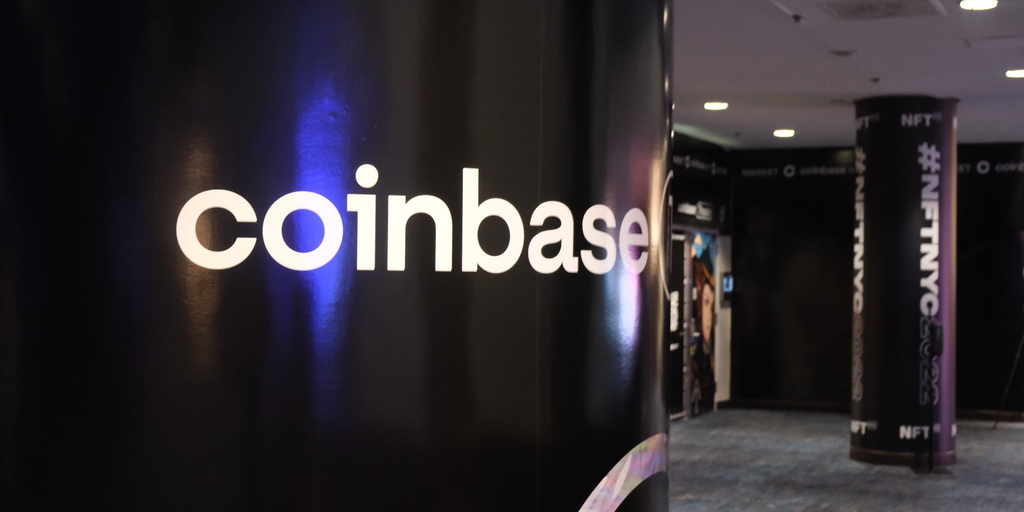MEXC and Bitget are popular crypto exchanges that let you buy and sell digital coins like BTC, ETH, SOL, and more easily. Both exchanges support spot trading, futures trading, P2P trading, instant crypto-to-crypto conversion, and advanced security features like 2FA and cold storage to keep your funds safe.
The best features of MEXC are no-KYC trading, futures trading with 200x leverage, 2,950+ supported altcoins, and the meme coins trading zone. The best features of Bitget are crypto copy trading, margin trading, advanced automated trading bots, and Bitget Wallet for DeFi use.
This MEXC vs. Bitget comparison will cover what the fees of MEXC and Bitget are, what the best features of MEXC vs. Bitget are, what the supported cryptocurrencies of MEXC and Bitget are, and what the security levels of MEXC vs. Bitget are. We will also compare user experience and customer support on both the crypto exchanges.
MEXC vs. Bitget: Comparison OverviewMEXC stands out with its no-KYC trading policy that lets you withdraw up to 10 BTC daily without your ID checks or any KYC measures, which is best for privacy-focused users or anyone who wants anonymous trading. It also offers 200x leverage trading, which is higher than Bitget’s 125x.
Bitget is known for copy trading. Here, beginners can copy over 190,000 expert traders easily. Bitget also brings advanced trading tools like 5x margin trading and a DeFi wallet for swapping tokens across chains, which you will not find on MEXC. However, MEXC lists over 2,950 coins for trading, whereas Bitget currently supports 1,200 cryptocurrencies for trading.
MEXC Bitget Founded 2018 2018 Country of Origin Seychelles Singapore KYC Requirement No KYC (up to 10 BTC withdrawal daily) Mandatory KYC U.S. Availability Restricted (VPN workaround possible) Not available Supported Cryptocurrencies 2,950 1,200+ Futures Leverage Up to 200x Up to 125x Futures Contracts 1,070+ 300+ Trading Fees (Spot) 0% maker, 0.05% taker 0.1% maker/taker (0.08% with BGB) Trading Fees (Futures) 0% maker, 0.04% taker 0.02% maker, 0.06% taker Meme Coin Trading Zone Yes (frequent new listings) No Automated Trading Bots Yes (basic options) Yes (Spot Grid, Futures Grid, DCA, etc.) Wallet for DeFi No Yes (Bitget Wallet, multi-chain) Protection Fund No $600 million (as of writing) Licenses None VASP (Bulgaria), BSP (El Salvador) Customer Support Email, live chat (slow responses) 24/7 live chat, email (faster responses)As a new user, start trading on MEXC today and enjoy 8,000 USDT as a welcome boost to explore cryptocurrency trading.
User Score
9.5
Exclusive Benefits
Up To $1,000 Bonus
10% trading fee discount
OPEN ACCOUNT NOW What Are The Fees of MEXC and Bitget?The fees of MEXC and Bitget are trading fees, deposit fees, and withdrawal fees. Here is a detailed comparison between different types of fees:
MEXC vs. Bitget: Withdrawal feesMEXC charges lower withdrawal fees compared to many crypto exchanges. Currently, withdrawing Bitcoin using the BTC network costs about 0.00003 BTC on MEXC, which is pretty affordable. About fiat currencies, MEXC does not support fiat withdrawals, but you can use third-party payment providers like MoonPay to convert your crypto to fiat and withdraw it in your bank account. These fees vary depending on your payment methods.
Bitget is also known for very low withdrawal fees and never charges extra apart from the network fees. The Bitcoin withdrawal fees are similar to MEXC, and it even offers zero withdrawal fees on the BEP-20 (BNB chain) network. Bitget also supports fiat withdrawals via bank transfers. For example, you can withdraw EUR using SEPA with charges as low as 0.5 EUR per transaction.
MEXC vs. Bitget: Deposit feesMEXC does not charge anything for cryptocurrency deposits, so you can send your coins to your MEXC account without extra costs, of course, you must pay network fees. Bitget also follows the same approach, offering free crypto deposits across the board.
However, if you’re depositing fiat currencies (like USD or EUR), Bitget supports bank transfers and might involve some third-party fees depending on your chosen payment method. MEXC also supports a few fiat deposit options through partners, but it’s not as broad as Bitget’s options, and some fees can apply based on the provider.
Supported Deposit MethodsMEXC supports both crypto and fiat deposit channels. You can send crypto coins to your MEXC wallet with no deposit fees, and for fiat deposits, MEXC relies heavily on third-party services rather than direct bank integration.
Here, you can use options like credit or debit cards (Visa and MasterCard) through partners such as Simplex, Banxa, or Mercuryo, or you can opt for bank transfers via SEPA if you’re in Europe. P2P trading is also available on the MEXC exchange, letting you buy crypto directly from other users with various local payment methods and even cash.
Bitget offers direct deposit support for over six fiat currencies, including USD and EUR, through bank cards, wire transfers, and even P2P trading with more than 100 local payment options. Bitget’s integration with third-party providers like MoonPay or Advcash adds extra convenience to your fiat deposit options. Hence, Bitget is best for fiat deposits, whereas MEXC does not offer many fiat channels, mainly due to its no-KYC policy.
MEXC vs. Bitget: Trading feesSpot Trading Fees:
MEXC charges very low trading fees. It charges 0% maker and 0.05% taker fees for spot trading, which is very low compared to the industry standard of 0.1% maker/taker. The exchange also offers discounts on maker fees based on your MX token holdings.
Bitget charges 0.1% for both maker and taker on spot trades, which is standard but not as cheap compared to MEXC. You can get a 20% discount by paying fees using a BGB token. However, the exchange offers different VIP tiers based on your BGB holdings and trading volume and you will get a discount based on your VIP level too.
Futures Trading Fees:
MEXC has some of the lowest futures trading fees in the market today. It charges 0% maker fees and 0.04% taker fees for your perpetual futures trades. This implies that if you place an order that contributes liquidity to the market (a maker order), you don’t pay anything, and if you take an existing order (a taker order), you pay a minimal fee of 0.04% per order.
Bitget, on the other hand, has a marginally higher cost structure for futures trading compared to MEXC. It imposes 0.02% for maker orders and 0.06% for taker orders. Bitget also gives a discount if you pay fees using their BGB token and if you are a high-volume trader.
Hence, MEXC comes out ahead on futures trading fees due to its zero maker fee and very low taker fee. Bitget’s fees remain low compared to most exchanges, and the BGB discount reduces them, but it can’t match MEXC’s base rates.
What Are The Best Features of MEXC vs. Bitget?The best features of MEXC are its 200x leverage perpetual futures trading, spot trading, copy trading, staking, and meme coin trading zone. However, it lacks some key trading features that can be found on other crypto exchanges, like trading bots, margin trading, and options trading.
The best features of Bitget are its copy trading, 125x leverage futures trading, spot trading, and trading bots. The exchange offers various Earn products like fixed and flexible staking, on-chain earn, crypto loans, shark fin, dual investment, and launchpool.
Join Bitget now to claim a 6,200 USDT bonus and get a 20% trading fee discount for a lifetime.
User Score
9.5
Exclusive Benefits
Up to 6,200 USDT
20% discount on trading fees
OPEN ACCOUNT NOW What Are The Supported Cryptocurrencies of MEXC vs. Bitget?MEXC offers 2,950 spot trading pairs and over 1,070 futures contracts. This vast selection makes MEXC a favorite among people who want access to a large number of digital coins, ranging from popular names such as Bitcoin (BTC) and Ethereum (ETH) to smaller altcoins and some new projects. Plus, it offers over 1,070 perpetual futures contract pairs.
Bitget has more than 1,200 spot trading pairs and over 300 futures contracts. That’s a good number, although still lower than MEXC-supported coins. Bitget still has top coins such as BTC, ETH, and Tether (USDT) and some good variety of other low-cap altcoins, but it appears to prioritize a carefully curated selection over quantity.
What Is The Security Level of MEXC vs. Bitget?MEXC and Bitget offer various security measures such as 2FA, cold storage, anti-phishing code, withdrawal address whitelisting, SSL encryption, and multi-sig technology.
2FA (Two-Factor Authentication): MEXC and Bitget use 2FA to add an extra step when you log in or withdraw funds from your exchange account. You need to enter a secondary code from an app like Google Authenticator or SMS-based, which makes it harder for hackers to break in even if they know your login password. Cold Storage: Both exchanges store most of the user funds in their cold storage wallets. This keeps your crypto offline and away from online attacks. Anti-Phishing Code: MEXC and Bitget offer an anti-phishing code feature. You have to set a unique code that appears in every official email from the exchange. This helps you spot real messages and avoid fake ones from scammers. Withdrawal Address Whitelisting: The withdrawal address whitelisting on MEXC and Bitget lets you set and approve specific wallet addresses for your crypto withdrawals. This helps you to stop anyone from sending your funds to unapproved addresses. SSL Encryption: MEXC and Bitget both use SSL encryption to secure the data you send to their servers. Generally, they scramble your information, like passwords, so hackers can’t read it during transmission, even if they get access to it. Multi-Sig Technology: Both trading platforms implement multi-signature (multi-sig) technology for crypto transactions. In this case, multiple approvals are required to sign a single large transaction; hence, this eliminates a single point of failure.Bitget Protection Fund
Bitget has more than $600 million in protection funds as of today. The fund will provide cover to users in case there is a security breach and losses occur. It began in 2022 and gradually developed using a percentage of trading fees.
Bitget Licenses
Bitget follows the regulatory status where it operates. The exchange has strict KYC policies and has secured licenses in various jurisdictions, such as a Virtual Asset Service Provider (VASP) license from Bulgaria’s National Revenue Agency. It is also working on a BSP license in El Salvador.
On the other hand, MEXC’s no-KYC policy attracts regulatory scrutiny and can attract money laundering. And because of the no-KYC policy, MEXC does not hold any major operating license.
How Do the User Experience and Customer Support Compare for MEXC vs. Bitget?MEXC and Bitget are some of the best crypto exchanges in terms of user experience and customer support. Both platforms offer a user-friendly interface and a simple trading portal for beginners. MEXC has email and live chat, but replies may be delayed, annoying users who require immediate assistance. Bitget also has a 24/7 live chat and email and is often complimented on being faster in its responses.
MEXC mobile app is feature-rich but can sometimes feel complex for beginners due to its variety of advanced features. It also offers a high-performance engine handling 1.4 million transactions per second.
Now, let’s check real user MEXC reviews. A Trustpilot user says, “I traded on MEXC for over two years. I deposit and withdraw funds without issues. They never scammed me or took my money.”
However, a Reddit comment notes, “Their support is a joke though. No reference ticket numbers. Had to screenshot chat as evidence.”
Here are some real user Bitget reviews. A Trustpilot review states, “I didn’t use Bitget for trading yet so I can’t let any review about the trading experience, but I can say I never got any issues with buy/sell/swap or receiving/transferring funds.”
Which Exchange Suits You Best: MEXC or Bitget?MEXC best suits users who want no-KYC trading, futures trading with 200x leverage, 2,950+ supported altcoins, and meme coins trading zone. Bitget best suits those who want crypto copy trading, margin trading, advanced automated trading bots, and Bitget Wallet for DeFi use.
Who is MEXC Best For?MEXC is best for:
No-KYC Crypto Traders: MEXC is best for traders who want to ensure anonymity and privacy while trading. You can buy and withdraw up to 10 BTC in a day without KYC. You can start trading with your email and withdraw crypto without any ID verifications. 200x Futures Leverage Trading: MEXC is best for high-leverage trading. It provides up to 200x leverage for its perpetual futures contracts. You can trade 1070 futures contracts at high leverage. Multiple Supported Coins: MEX is best for people who want a variety of crypto coins listed on the centralized exchange. It has 2,950 available spot trading pairs and more than 1,070 futures contracts. So, you can trade both popular coins like BTC, ETH and new emerging tokens. Meme Coin Trading: MEXC is ideal for meme coin traders. It constantly lists new meme coins upon their launch in a designated trading zone.You can read our in-depth MEXC review for more info, and if you are a new user, you can use our MEXC referral code during registration to get an 8,000 USDT sign-up bonus.
User Score
9.5
Exclusive Benefits
Up To $1,000 Bonus
10% trading fee discount
OPEN ACCOUNT NOW Can Americans Use MEXC?No, Americans cannot use MEXC easily because of strict regulatory rules in the United States. MEXC is a crypto exchange that blocks users from the U.S. based on their IP address.
This happens because the U.S. has tough laws about crypto trading, like requiring exchanges to follow anti-money laundering (AML) rules and verify everyone’s identity (KYC). However, due to its no-KYC policy, some people use a VPN to hide their location and pick a country where MEXC works.
Who is Bitget Best For?Bitget is best for:
Crypto Copy Trading: Bitget is best for novice traders who want to copy other experienced traders on the platform and make profits. You can track the best traders based on PnL and win rate and replicate their trades automatically without needing to learn everything yourself. It’s a very simple way to begin trading without a lot of experience. Margin Trading: Bitget is best for people who want margin trading with 5x leverage. You can borrow funds from the exchange with your idle assets as collateral. It offers both cross and isolated margin modes and also offers advanced order types for risk management. Advanced Automated Trading Bots: Bitget is perfect for users who want trading done for them. Bitget offers various bot types, such as grid bots, portfolio rebalancing bots, martingale bots, and arbitrage bots. Bitget Wallet for DeFi Use: Bitget is for those who need a DeFi wallet. The Bitget Wallet allows you to store crypto, exchange tokens, and access DeFi apps securely. You can go fully decentralized with Bitget Wallet.You can read our detailed Bitget review for more info and if you are a new user, you can use our Bitget referral code during registration to get a 6,200 USDT sign-up bonus.
User Score
9.5
Exclusive Benefits
Up to 6,200 USDT
20% discount on trading fees
OPEN ACCOUNT NOW Which Country Owns Bitget?Bitget is owned by a company from Singapore. It’s run by the Bitget Group, which started in 2018 and has its main office in Singapore. Bitget works in over 100 countries but not the U.S. or a few others because of local laws.
The post MEXC vs. Bitget (2025): A Comprehensive Crypto Exchange Comparison appeared first on CryptoNinjas.















